I was in the living room and my wife was in the kitchen when Riley started barking out in the yard. It wasn’t your standard “deer” bark, either, so when I heard Molly yell, “Riley, no!!!” I jumped up and ran for the door. The local coyotes were hanging around our place and I was worried that our retriever was in trouble with the wild dogs.
By the time I made it outside the barking had stopped, and Molly and Riley were standing near the massive cottonwood that shades the northwest corner of our home.
“Coyotes?” I asked.
“Grizzly bear. A big one.”
It turned out that when Molly opened the back door and went outside, Riley and the bear were in a face-off on the lawn. When Molly saw the grizzly, she yelled at Riley. When the bruin saw Molly, he high-tailed it off into the woods.
Problem solved.
We live with bears here in Montana’s Flathead Valley. Our 27 acres sit at the base of the Swan Range, with lush meadows, dense woods, and a little creek that acts as a travel corridor between the mountains to our east and the fertile valley to our west. Grizzly bears are commonplace, as are black bears, while Montana’s other apex predators - wolves and mountain lions - also swing by on occasion. In fact, you could say we’re right in the middle of a major predator zone.
Fortunately, there’s not much to worry about as long as everyone - two-legged and four - follows the Golden Rule and treats the neighbors with respect. And truth be told, that isn’t as hard as you might think. I keep the grass short around the house, so it’s pretty clear what we claim as our personal territory. Except for the rare bear or lion who cuts across the edge of the yard, the various denizens of Big Sky Country tend to respect our boundaries.
If you don't live here, though, it can all sound a little scary. Lions, wolves and bears has a familiar ring to it; a Dorothy-esque “lions and tigers and bears” refrain that echoes off into the far reaches of our subconscious. We’re conditioned to fear the unknown, while our distant ancestors, who lived every single day with nature in the raw, had no choice but to acknowledge that tooth & claw are formidable risks. I’m not sure if our unease around big predators is some sort of encoded genetic imperative, or whether it’s as simple as common sense, but it certainly speaks to the importance of forethought and awareness.
At the end of the day, maybe that’s why I’m comfortable living here. Bears, lions and wolves are a risk I understand. I know the landscape and I have a pretty good feel for how to handle whatever problems might arise. It’s funny, but the things that worry me, and that worry so many of my friends here in the West, aren’t the threats we’ve evolved with over tens of thousands of years, but the ones that we’ve never seen before.
For example, while we treasure our public lands, which are both an economic engine and a boundless source of personal freedom, those lands are coveted by rapacious profiteers and free market fundamentalists. If we don’t stand firm, they’ll be auctioned off and we, as Americans, will lose our shared title to the Last, Best Place.
The Flathead also depends on clean water, yet we allow monstrous trains hauling toxic Bakken crude oil to snake along the Middle Fork, and through the southern edge of Glacier National Park, where a derailment and subsequent spill would be catastrophic for the valley and our local economy.
Even more importantly, our civilization is rooted in 10,000 years of climate stability. America grew strong and flourished under a stable climate, yet we seem committed to dumping obscene amounts of CO2 into the atmosphere, assuring that the glaciers in Glacier National Park will melt; that our world-renowned trout streams will run low and hot in the summer; that our forests will succumb to drought and insects, and our wildfires will grow ever larger and more catastrophic.
These aren’t the same perils our ancestors faced. Climate change, public land transfers and exploding oil trains don’t stroll hand-in-hand through the subconscious like “Lions and tigers and bears!” We can’t fence them out, or scare them off with a warning shot. But here in northwest Montana, these are the threats that keep me up at night.

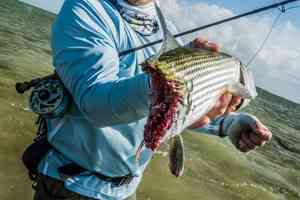



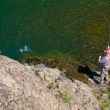
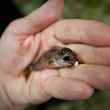
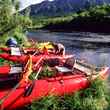



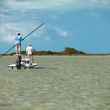
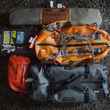
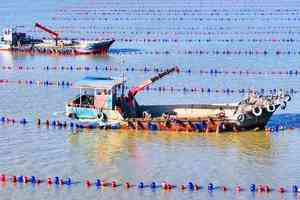


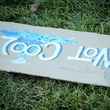




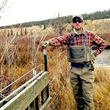
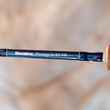



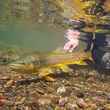

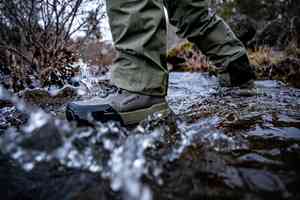
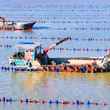
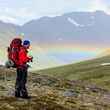
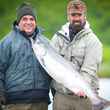
Comments
Ken replied on Permalink
I came here to read an interesting article about living with so many predators in your environment. Imagine my surprise to find a scathing screed critical of Western culture and our capitalist society.
It is remarkable that you brag about your 25 acres of paradise, then in the following paragraphs trash those who might want to have a little bit of heaven as well. Evil "fundamental capitalists," of which you appear to be one, drive the engine of innovation that allows you to enjoy you little slice of paradise.
BTW, how do you get around the vast expanses of Montana? Do you walk or ride a bicycle? Or, are you like most Americans who use carbon burning vehicles to get around? I'm really curious... how do you get areound and heat your home?
Todd Tanner replied on Permalink
Ken, I’m a longtime outdoor writer. Like most writers, I don’t typically respond to comments about my work. Every once in a while, though, I'll make an exception - and I’m going to do that here.
First, to your question. I drive a pickup truck and heat my home with wood. I’m definitely looking forward to the day when I can purchase an electric pickup, and when our local electrical grid is powered with 100% clean, renewable energy.
Second, I’d suggest that you go back and read the piece again, pay a little more attention to what I wrote, and try not to view things through such a distorted lens. I didn’t write a “scathing screed” about “Western culture and our capitalist society.” In fact, I didn’t pen a screed, scathing or otherwise, and I didn’t mention mention western culture or capitalism at all.
Now do I favor protecting our public lands from the people who want to sell them off or give them away? Yes, I do.
Do I want to protect our local waters from a catastrophic oil spill? Yes, I do.
Do I want America to cut back its CO2 emissions and protect our landscapes from the impacts of global warming? Absolutely.
But none of this is controversial, or partisan, or ideological. Every single patriotic American should agree with me that our country is worth protecting. Don’t you believe that as well?
Francine Snyder replied on Permalink
Your writing is eloquent and succinct. I suggest the fellow who commented come here to West Virginia to see the actual effects of what you fear. Instead of mountain streams, we face mountain top removal. The coal industry has destroyed the land in the name of jobs and the economy. The profits traveled out of state to New York penthouses. Keep aware and guarded lest you suffer the fate of my state.
Ken replied on Permalink
Thank you for taking the time to respond. I admire a man who is not afraid to discuss the issues.
Had you ended the article after the tenth paragraph, then you would have achieved the goal stated in the title. However, you could not leave it at that.
I did not view it through a distorted lens. I viewed it from the point of view of someone who loves the outdoors, yet understands that our way of life depends on the realities of the technology we rely on today. I am encouraged by the progress in materials science that will enable us to create energy with minimal environmental impact. That day is coming - perhaps soon. But right now carbon fuels are what enable us to sustain our lifestyle and protect the environment to the degree we are able to today. Contrary to what most people believe, oil and gas derived fuels have saved our environment from a true global catastrophe - the real global destruction of the world's forests. That's not hyperbole, it's a fact.
Finally, you make a statement that is ridiculous on it's face. "But none of this is controversial, or partisan, or ideological." If this was true, then you would not have responded to my post. So I must ask, who is the one who views through a distorted lens? We both have views. We agree on some and disagree on others. But to claim that none of it is controversial, partisan, or ideological is just silly.
johnny alamilla replied on Permalink
You got that right bro . as a fellow flathead resident . c falls. oil trains in the park and public land exploitation is far scarier than any brown bear , black bear ,lion or wolf . its stupid humans that are the true danger
Danilushka Ozera replied on Permalink
Since you brought it up and want to talk about the transportation of vital oil for energy, I find it interesting when I hear criticism aimed at moving vital oil by rail, when the same people refuse to let it be moved by the much safer and far less risky pipelines. Nearly none of us would be reading your article if it was not for the energy foundation fossils fuels provide modern civilization.
What do you suggest? Unplug civilization and wait for solar?
Of course we should build alternative cleaner energy sources to phase out fossil fuels when we can, but we are not ready and Obama's punishment of coal without economically viable large scale energy being ready simply increased energy costs and made US manufacturing less competitive and punish consumers. Meanwhile, China, Russia, and India built far more coal plants and continue to do so while the US economy slumps at 1% growth.
Rome was not built in a day, but brick by brick. And so will be alternative energy. We will, through hard work, innovation, and dedication, develop better cleaner sources of energy in time, but if we bankrupt our nation before they are ready, we won't be around to enjoy them.
I wish more on the left had roots in business, military, and economics disciplines instead of myopic "feelz" activism and liberal-arts education and maybe we would find during the dialog that we all want a better planet for all its inhabitants. Some of us just have a more realistic plan and approach. President Trump's sons are both avid outdoorsmen by he also has a nation's welfare in his charge and balancing interests is all the more difficult with an uncompromising Left.
Pages